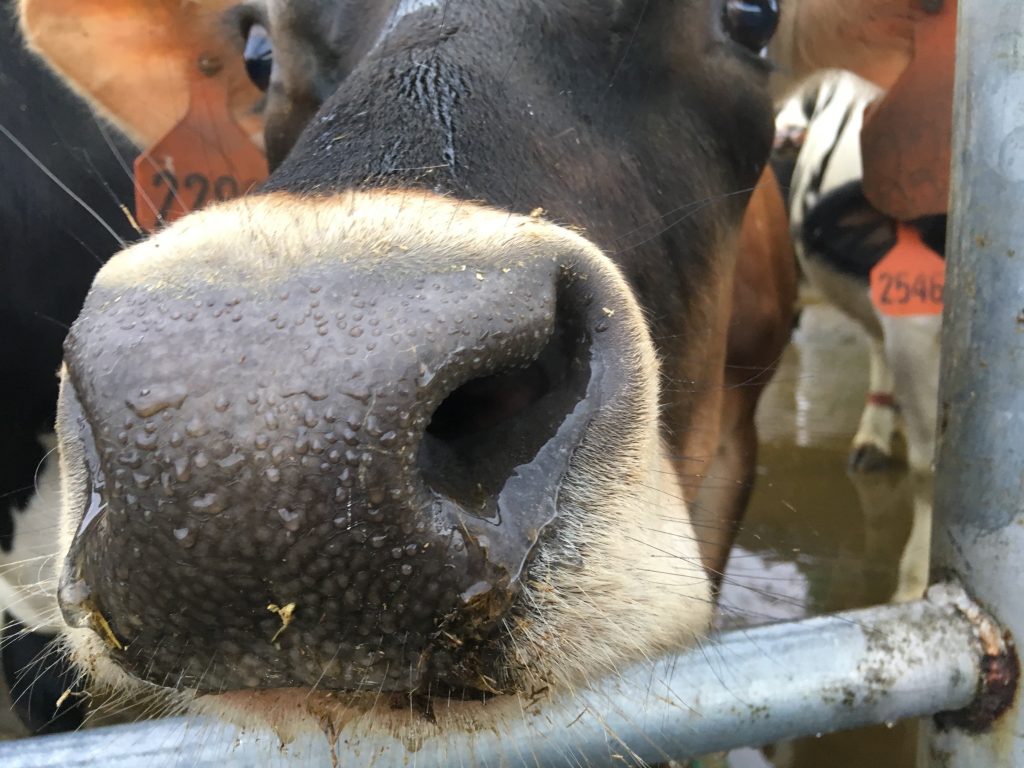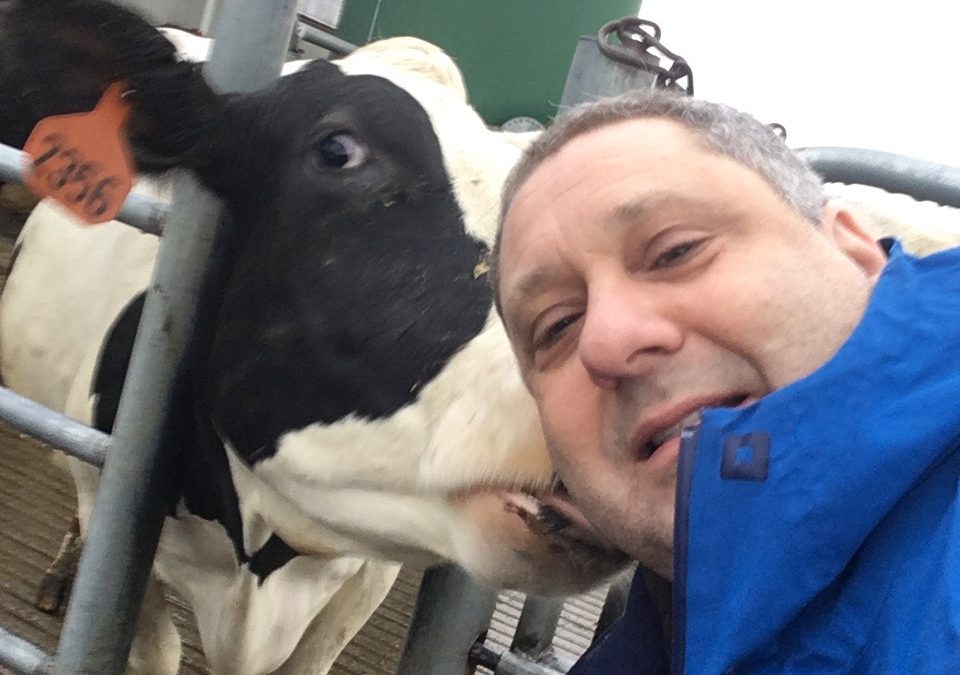I confess: I’m not generally a cow kisser, but this is no normal cow.
Last week, while directing a client photo shoot, I had the opportunity to dispense clean water from their membrane system. That, in and of itself, isn’t that big of a deal. Municipal water systems and industrial users have been treating their water for decades to ensure a consistent potable supply for their customers, and membranes are an integral part of all of those systems.
What made it remarkable was the tap I opened dispensed clean water that originated from the back end of a cow.
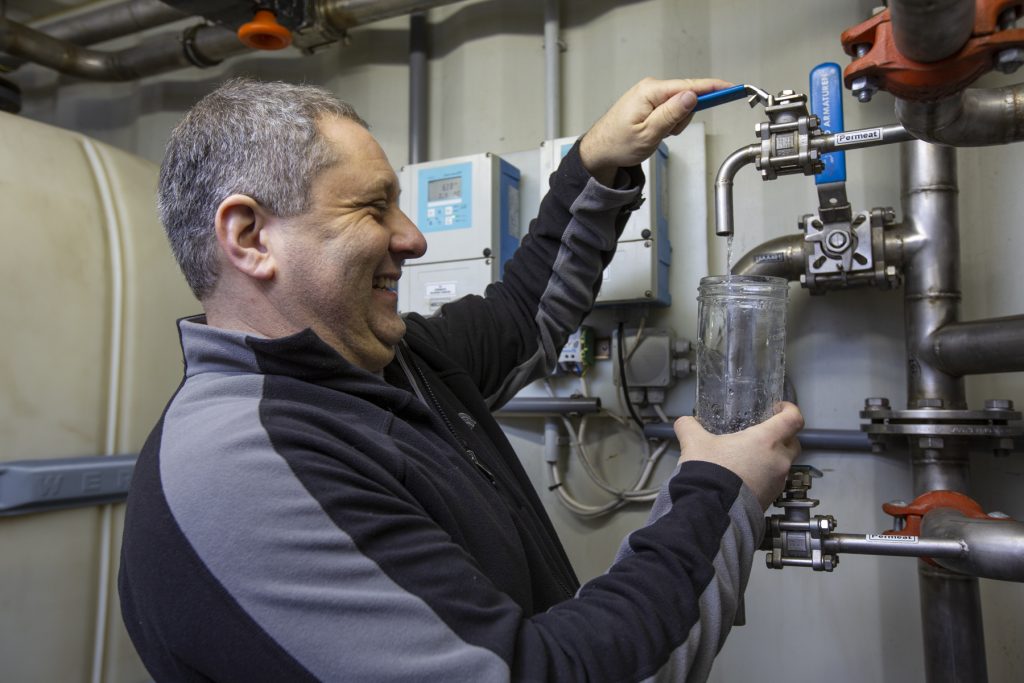
The answer to the first question is an agricultural waste solutions company called Regenis. I’ve been working with them for about five years now as they’ve captured methane from cow manure and turned it into clean energy; killed bacteria and pathogens in the manure stream so it doesn’t end up causing damage to our watersheds, and; given farmers an organic alternative to chemically-based, imported fertilizers.
The answer to the second question is any one of ten billion people who will inhabit our planet by the end of the century.
It’s no secret only 0.4% of the earth’s water is drinkable after subtracting oceans, polar ice caps, glaciers, or inaccessible to humans. If that doesn’t frighten you, take a look at this illustration from the United States Geological Survey showing the amount of available water in comparison to the size of the earth.
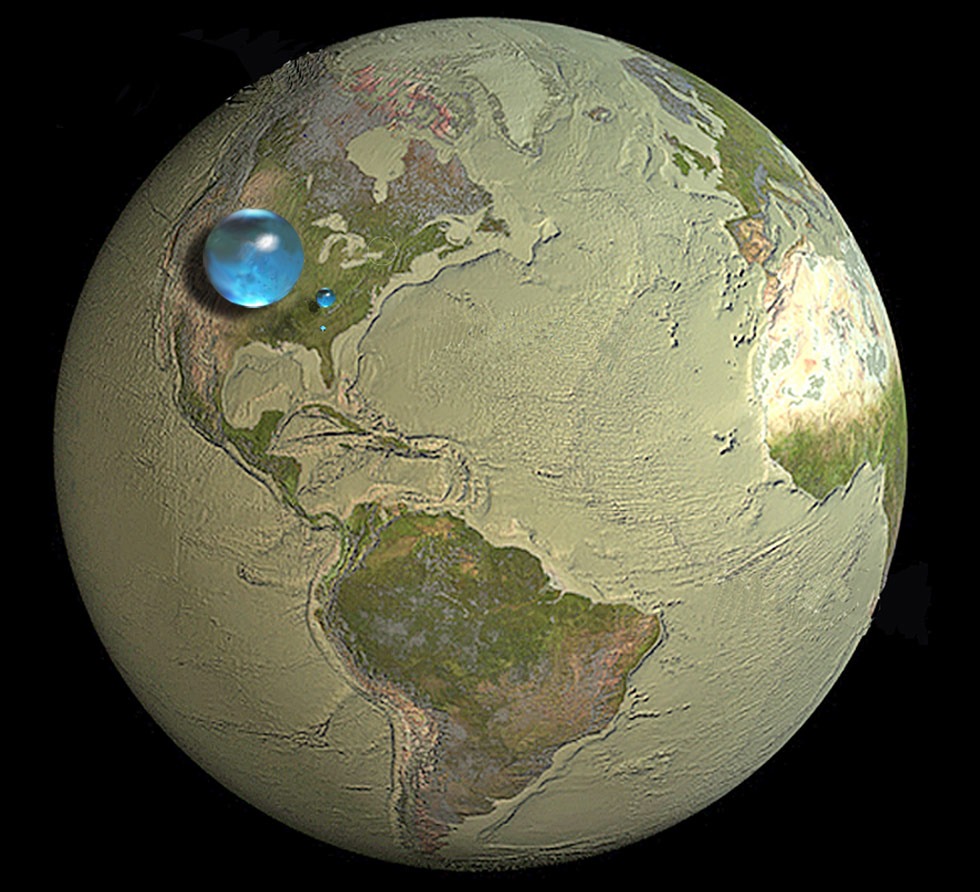
If you think wars over oil in the last century were costly in lives and dollars, imagine the intensity of clashing societies if we run out of potable water.
While it’s unlikely you’ll see bottles of Bessie Water lining your supermarket shelves anytime soon, the reality is, our planet wasn’t meant to have ten billion people, and to survive as a species we must find ways to reuse everything, especially our most basic building blocks of life.
In this case, the clean water regenerated by the system goes back into a stream, which lies about 200 yards from the dairy farm, to ensure enough flow for migrating salmon.
With this one solution, a stream teeming with life will receive additional three-and-a-half football fields of clean water, 50 feet wide and 11 feet deep, every year.
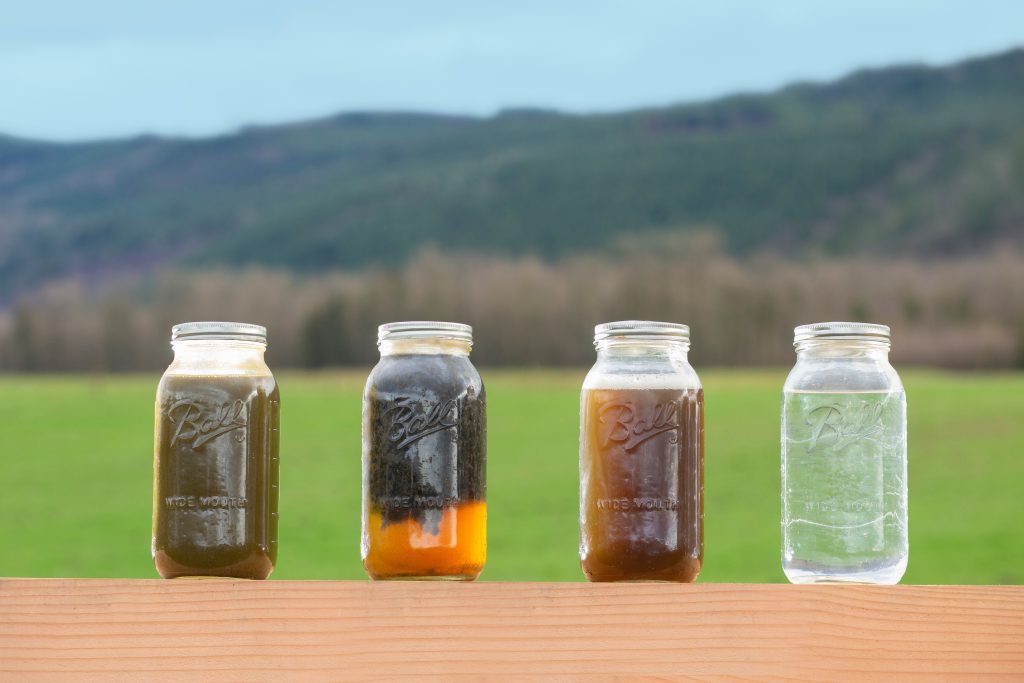
Working in cleantech means believing we can find 10,000 more solutions just like this one so we can overcome the challenges of overstretched resources, and I consider myself very fortunate to get to work every day on behalf of these pioneers.
Call me a hopeless optimist, but I believe when it comes to changing the way we look at how we use our resources, there’s still time to get the cow’s nose under the tent.
